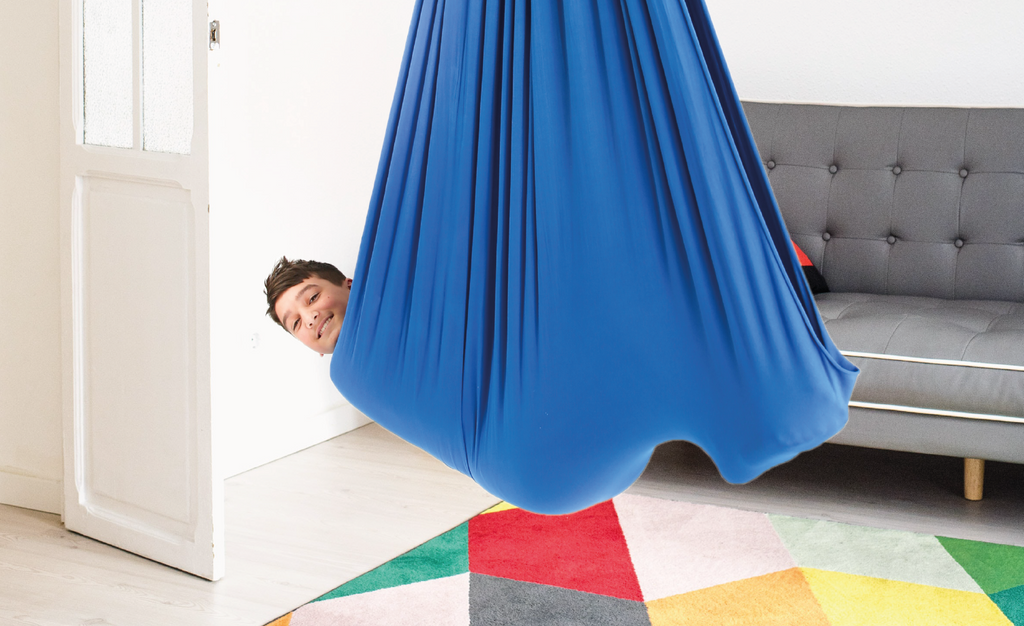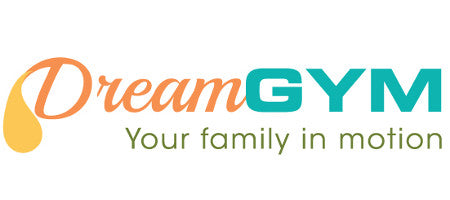
Introduction
Parents and caregivers often search for ways to help their loved ones feel calm, focused, and supported, especially when navigating autism, ADHD, or sensory processing disorder (SPD). One powerful tool is the sensory swing. Once found only in therapy clinics, sensory swings are now available for homes everywhere, benefiting people of all ages.
Whether you’re looking for a sensory swing for kids, teens, or adults, these versatile swings can become an essential part of your daily routine, offering relaxation, movement, and sensory support.
How Sensory Swings Help the Nervous
System Sensory swings gently stimulate the vestibular system—the part of the inner ear that guides balance, movement, and body awareness. When you swing or rock, calming signals travel to the brain.
This can:
- Reduce anxiety
- Improve mood
- Boost focus
- Support healthy sensory processing
Children’s Experience:
Kids with autism or SPD often crave movement or struggle with overstimulation. A sensory swing offers consistent input that helps them feel grounded and secure.

Teens’ Experience:
Adolescents face academic demands and social stress. A swing can become a private retreat to release energy, regroup, and refocus.

Adults’ Experience:
Even adults benefit from gentle swinging. It can ease tension after a long day, decompress the spine, and promote mental well-being, especially for adults with ADHD or high-stress jobs.
Occupational therapy studies show swinging can help balance neurotransmitters like serotonin and endorphins, leading to calmer behaviour and better attention.

Key Benefits for Children
Improved Sensory Regulation
The rhythmic motion of swinging calms an overstimulated nervous system. Many occupational therapists recommend swings to help children reach a “just right” state, more regulated and ready to learn or play.
Strength and Coordination
Swinging engages core muscles and improves balance. Children learn to shift their weight, pump their legs, and develop coordination—all while having fun.
Better Focus and Attention
Short swinging sessions before homework can help kids with ADHD burn off extra energy and settle into a focused mindset.
Fun Indoor Activity
When outdoor play isn’t possible, an indoor sensory swing creates a safe, engaging space for movement.
Recommended Product:
DreamGYM Sensory Swing for Kids: Soft, stretchable fabric with a comforting cocoon shape, perfect for children with autism or SPD. Easy doorway installation fits small spaces.
Key Benefits for Teenagers
Stress Relief and Emotional Balance
Teens often feel pressure from school, friendships, and responsibilities. A sensory swing can help lower cortisol (the stress hormone), providing a peaceful escape.
Continued Motor Development
Teens still benefit from swinging to strengthen core muscles, improve posture, and maintain coordination.
Improved Focus and Self-Regulation
Vestibular input can help teens with ADHD reduce restlessness and transition more easily to studying.
Recommended Product:
DreamGYM Therapy Hammock Swing: Supports teens’ weight while offering a cozy, enclosed space for relaxation.
Key Benefits for Adults
Reduced Stress and Anxiety
Adults can use a sensory swing as part of a daily self-care routine to unwind, manage stress, and feel more centred.
Physical Comfort
Swinging helps decompress the spine and relieve muscle tension from long hours sitting or standing.
Sensory Support for Neurodiverse Adults
Adults with autism or SPD can benefit from a safe space to reset and calm their senses.
Mindful Relaxation
A hammock swing is perfect for reading, listening to calming music, or simply taking a break.
Recommended Product:
DreamGYM Therapy Hammock Swing: Strong, durable construction designed for teens and adults alike.
Scientific Backing and OT Insights
Occupational therapists have long recognized the benefits of swinging, including:
- Reduced anxiety and meltdowns
- Improved balance and core strength
- Enhanced focus and attention
- Increased readiness for social and learning activities
Therapists recommend adjusting speed and duration based on individual needs. Some people prefer slow, linear swinging, while others enjoy gentle spinning.
Practical Tips for Home Use
Installation Options:
- Doorway Kits: Ideal for smaller homes or apartments. Easy to install and remove.
- Ceiling Mounts: Allow more movement, including spinning.

Weight and Safety:
Always check weight limits and anchor hardware securely.
Supervision:
For kids: Always supervise.
For adults: Start slowly to avoid motion sickness.
Frequency:
Many families find 5–15 minute sessions throughout the day are most effective.
Creating a Sensory Oasis at Home
Imagine a calming corner with:
- Soft lighting
- A cosy rug
- Calming music
- A DreamGYM sensory swing ready for quick breaks
This simple setup can help the whole family feel more balanced and connected.
The DreamGYM Difference
When you choose DreamGYM, you get:
Sensory-Friendly Materials:
- DreamGYM sensory swings are crafted from 95% cotton fabric that feels soft and natural against the skin, perfect for individuals with sensory sensitivities
- The continuous loop design has no seams that could create irritation or sensory challenges
- The four-way stretch gently hugs the entire body, providing calming, even pressure.

Rigorous Safety:
Products are tested for strength and durability. Easy Installation: Clear instructions and helpful support.
Family-Friendly Design:
Options for kids, teens, and adults.
Ready to Get Started?
A sensory swing is more than equipment, it’s a way to support emotional regulation, strengthen the body, and create moments of calm.
Explore DreamGYM’s collection of sensory swings and find the perfect fit for your family.

